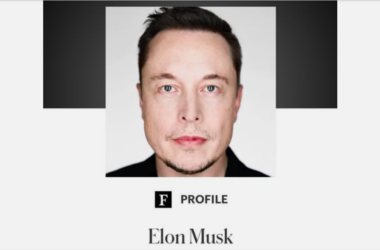
Elon Musk has expressed strong interest in possibly launching SpaceX rockets from South Africa’s Denel Overberg Test Range near Arniston, a move that could strengthen the country’s emerging role in the global space economy. Following a high-profile diplomatic exchange between former President Donald Trump and South African officials, the proposal was raised during a closed-door meeting at the White House. According to individuals familiar with the discussions, Musk expressed interest in two key areas relating to South Africa: access to the Overberg site for orbital launches, and concerns about the availability of rare-earth magnets amid tightening export restrictions from China.
The Overberg Test Range is of particular interest for missions requiring polar orbital access, including satellite launches that pass over the South Pole. SpaceX is also considering the site for its Starlink low-Earth orbit (LEO) satellites, which aim to expand broadband coverage, particularly in underserved regions. The interest in Overberg could serve as a catalyst for increased commercial activity within South Africa’s space sector. The proposed use of the site would not only drive further investment in infrastructure and workforce development, but also has the potential to position the country as a competitive entrant in the global launch services market.

About South Africa’s Launch Capabilities- The Overberg Test Range
The Denel Overberg Test Range (OTR), located near Arniston in South Africa’s Western Cape, has evolved from a missile testing site in the 1990s into a dynamic centre for aerospace innovation and a promising launch hub for both suborbital and orbital missions. This transformation has been largely driven by the Aerospace Systems Research Institute (ASRI) at the University of KwaZulu‑Natal, whose recent activities and focused efforts have have brought sustained momentum to the site.

In 2024, the University of KwaZulu‑Natal’s Aerospace Systems Research Institute (ASRI), supported by the Department of Science and Innovation, delivered an incredible milestone by unveiling a suborbital launch gantry at Overberg. Commissioned in October and officially unveiled in December, the gantry supports full 360° horizontal rotation and vertical elevation, accommodating hybrid rockets like ASRI’s Phoenix series as well as larger sounding rockets.
Additionally, the facility successfully launched Phoenix‑1D and ‑1E rockets, reaching 16.6 km and 11.9 km, with one vehicle transmitting magnetometer data during flight, which was a boost for scientific research through local telemetry capabilities. Beyond suborbital research, ASRI envisions the development of a small Commercial Launch Vehicle (CLV) capable of placing 200–500 kg payloads into sun-synchronous orbit by around 2028. A feasibility study and national task team recommended a two-stage liquid-propellant design powered by nine SAFFIRE engines in the first stage and one in the upper stage, to be deployed from OTR.
Furthermore, the first SAFFIRE engine tests were conducted at Overberg in June 2024, and ground infrastructure, including a permanent engine test stand, advanced manufacturing labs, and green propellant facilities is due for commissioning by 2025. If an agreement is reached with SpaceX, the company could help accelerate development of Overberg’s orbital launch facilities, potentially bringing forward timelines and catalysing local investment. In doing so, South Africa would take a significant step toward Africa’s long-standing goal of independent access to space, enabling sovereign satellite launches and strengthening the continent’s position in the global space economy.




